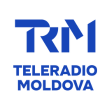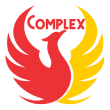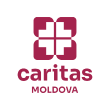Achiziții de bunuri și contractări de servicii
- Detalii
- Categorie: Achiziție bunuri, Contractare Servicii
Market survey to identify exporters needs, requirements, eventual bottlenecks to start exporting to new markets and expanding presence in existing ones
Informațiile prezentate în articolul de mai jos pot să nu mai fie actuale sau să nu mai reflecte activitățile și programele curente. Anunțul este păstrat în arhivă pentru a asigura transparența și accesul public la informațiile despre inițiativele și proiectele implementate anterior.
REQUEST FOR EXPRESSIONS OF INTEREST
MARKET SURVEY TO IDENTIFY EXPORTERS NEEDS, REQUIREMENTS, EVENTUAL
BOTTLENECKS TO START EXPORTING TO NEW MARKETS AND EXPANDING PRESENCE IN
EXISTING ONES
REPUBLIC OF MOLDOVA
MICRO, SMALL AND MEDIUM-SIZED ENTERPRISES COMPETITIVENESS PROJECT
Sector: General industry and trade sector
IDA Credit No. 71740
IBRD Loan No. 94230
Project ID No. P177895
Reference MD-CEP-419510-CS-CQS
The Republic of Moldova has received financing from the World Bank toward the cost of the Micro, Small
and Medium-Sized Enterprise Competitiveness Project (MSME) and intends to apply part of the proceeds
for consulting services.
The consulting services (“the Services”) include providing support to Moldovan Government and its Invest
Moldova Agency to conduct a market survey aimed at identifying the needs, requirements and possible
obstacles in initiating Moldovan exports to new markets and penetrating existing markets to improve the
country's export potential.
The assignment will be performed in the period November 2024 – February 2025 and will require a level
of effort of approximately 150 man-days.
The detailed Terms of Reference (TOR) for the assignment are attached to this REoI.
The Project Implementation Unit of the MSME Competitiveness Project now invites eligible local
consulting firms (“Consultants”) to indicate their interest in providing the Services. Interested Consultants
should provide information demonstrating that they have the required qualifications and relevant experience
to perform the Services (required qualifications and experience of the firm, but not individual experts’ bio
data).
The following selection criteria will be applied:
# Criteria Points
1. Company first-hand experience in conducting field research, enterprise surveys,
including carrying out sample-based enterprise surveys. 40
2. Company relevant experience in conducting market research and export analysis,
demonstrated through successfully completed similar projects 25
3. Company first-hand experience in preparation of analytical reports and understanding
of the policy issues underlying the survey 25
4. Staff with relevant competence in conducting different type of surveys and research 10
The attention of interested Consultants is drawn to Section III, paragraphs, 3.14, 3.16, and 3.17 of the World
Bank’s “Procurement Regulations for IPF Borrowers” November 2020 (“Procurement Regulations”),setting forth the World Bank’s policy on conflict of interest. A Consultant will be selected in accordance
with the „Consultant’s Qualification-based Selection” method set out in the Procurement Regulations.
Consultants may associate with other firms to enhance their qualifications; but should indicate clearly
whether the association is in the form of a joint venture and/or a sub-consultancy. In the case of a joint
venture, all the partners in the joint venture shall be jointly and severally liable for the entire contract, if
selected.
The Expression of Interest shall clearly state the name of the Consultant (individual Firm, Joint Venture
or sub-consultancy). The Consultant shall provide relevant references (assignment name, Client, time
frame, the role of the firm (main Consultant/Partner in JV/sub-consultant, contract amount, tasks
performed etc.) to confirm its experience and qualifications.
Further information can be obtained at the address below during office hours.
Expressions of interest must be submitted in a written form to the address below (in person, or by mail, or
by e-mail) by November 14, 2024, COB.
Project Implementation Unit of the MSME Competitiveness Project
Attn. Mr. Aureliu Casian, Executive Director
180, Stefan cel Mare Ave., office 815, MD-2004, Chisinau, Republic of Moldova
Tel: + 373 22 296-723;
e-mail: piu@mded.gov.md
web: www.uipac.mdTERMS OF REFERENCE
Market survey to identify exporters needs, requirements, eventual bottlenecks to start exporting to new
markets and expanding presence in existing ones
A. Background
The Government of the Republic of Moldova (GoM) is pursuing a policy agenda to support export-led economic
growth. The MSME Competitiveness Project’s aims to increase the competitiveness of Moldovan enterprises by
reducing the regulatory burden they face, supporting their access to finance, and supporting MSMEs development
and their export competitiveness. The Project will digitize G2B services, which in turn will reduce compliance costs
and the regulatory burden for enterprises. In addition, improvements in quality infrastructure will increase the
number of accredited laboratory services and reduce costs for enterprises, which also enables more exports. These
activities will enhance MSME competitiveness in the domestic and international markets. The Project will provide
funds to issue partial credit guarantees to support MSMEs access to finance and funds to support MSMEs in
improving their products and services. As a result, access to finance is expected to increase, contributing to MSME
survival or growth, job increase or retention, and increased competitiveness and exports.
The World Bank has been supporting the Government in its competitiveness and reform efforts through two
Competitiveness Enhancement Projects, which closed successfully and focused on: (i) regulatory reform; (ii) small
and medium enterprises’ access to business development services and quality certifications, through a matching
grant facility (MGF); (iii) access to finance, through a line of credit (LoC) for exporters; and (iv) quality
infrastructure, including equipment and institutional reform in the area of metrology, standards, testing, and quality.
During the implementation of the CEP II, the supported activities generated approximately US$215 million in new
exports, more than 1000 jobs, an estimated US$15 million in savings for the private sector linked to the
implementation of the electronic one stop shop for permits, as well as other reforms. Two hundred and seventy
companies benefited from MGF, with more than 55 percent of them exporting for the first time. A total of US $41
million in new export sales have been realized by program recipients and creating more than 800 new jobs. Impact
evaluation of the MGF revealed that for US $1 invested through the program, US$ 12,4 in new export sales have
been achieved. Under the new operation it is also envisaged support for firms through matching grants and export
readiness programs.
Ministry of Economic Development and Digitalization (MEDD) has expressed its strong desire for a project that
builds on the successes of the previous one, addresses institutional capacity challenges, and takes a more
comprehensive approach to enterprise competitiveness.
B. Project Description
The MSME’s project development objectives (PDO) are: (i) to reduce the regulatory burden, increase access to
finance, increase the export competitiveness of Moldovan enterprises, and (ii) in case of an Eligible Crisis or
Emergency, to respond promptly and effectively to it.
The project consists of the following components:
Component 1 – Regulatory reform and Digitization. This component supports the Government in reducing the
regulatory burden on businesses by further digitization both at the national and local levels, enhancing and digitizing
inspection services, improving interoperability and integrated service delivery for businesses, simplifying the
regulatory environment, and improving the National Quality Infrastructure System (hereinafter NQI).
Breaking it down by key activities: (a) scale up the digitization of G2B services, including upscaling the existing
MMIP government digital platform, digitalizing additional business permits at the national level, and deploying the
MMIP to the sub-national level in all 35 rayons; (b) enhance, digitalize, and equip business inspections; (c) enable
interoperability of different platforms and services provided to businesses through the development of integrated
service delivery; (d) simplify the regulatory environment; (e) increase MSME competitiveness and enabling exports
through the improvement of the NQI system; (f) introduce compliance with Performance-Based Conditions (PBC)
that reflect the Government’s own objectives and are relevant to the success of digitization of G2B services andinspection reform and (g) address climate vulnerabilities and supports the reduction of GHG emissions and generate
mitigation and adaptation climate co-benefits.
Component 2 – Access to Finance. This component aims to support the Credit Guarantee Facility (CGF) under the
Organization for Entrepreneurial Development1 (hereinafter ODA) in providing of financial guarantees to MSMEs,
to deliver more effective programs and assistance that have positive spillovers for the growth of MSMEs and export-
oriented sectors to expand the business, enter new markets, start new export activities, and introduce new
technologies needed for productivity gains.
Component 3 – MSME Development and Export Competitiveness, focusing on supporting firms through matching
grants, export readiness, supplier linkages, and export promotion programs. The objectives of this component are
linked with the Government’s goals of simplifying the rules for MSME operation, supporting business
establishment, growth and internationalization, enabling more efficient support programs for MSMEs, as well as
facilitating the inflow of investments.
Component 4 – Contingency Emergency Response (CERC). This is an unfunded contingency component that can
be activated in case of a relevant emergency event. Following an eligible crisis or emergency, the Borrower may
request the World Bank to reallocate Project funds to support an emergency response. Once triggered, this
component will draw from the uncommitted loan resources under the Project to address the emergency.
Context of export-led growth for Moldova
A key challenge facing the Government of Moldova is the need to promote economic growth and job creation based
on robust private sector activity, exports and enhanced investment. One of the elements which could ensure
sustainable economic growth of the country is the implementation of coordinated and proactive incentive policies
in the field of export development and investment activity. However, it is important to take into account the existing
technology gap, which is a major obstacle to the competitiveness of Moldovan exports and requires strategic
approaches and adequate investment to overcome it.
Exports are a vital element of the Moldovan economy, reflecting an upward dynamic in particular towards European
Union markets. However, the current structure of exports is characterized by a predominance of low value-added
raw materials and low sophistication. This limits the value of export earnings, having a negative impact on economic
development potential and increasing vulnerability to global price fluctuations.
The tax and customs regime in the Republic of Moldova largely favors re-exports, which benefits job creation and
human capital development. However, this increase in exports is often associated with a commensurate increase in
imports of raw materials and semi-manufactures. This is reflected in the country's deficit trade balance, which in
2022 registered a deficit of USD 4.9 billion (33% of GDP), and excluding fuels, the balance amounted to USD -2.9
billion (19.9% of GDP).
Moldovan companies face challenges in accessing international markets competitively due to underdeveloped
logistics infrastructure and high transportation costs. These companies face significant technical and commercial
challenges, including strict quality standards and international regulatory requirements. Also, the lack of adequate
knowledge and resources to access and navigate foreign markets negatively influences their ability to expand
globally.
Within this framework, under the current support of the MSME project, the Government through the Invest
Moldova Agency (MIA) is seeking the services of a consulting firm to conduct a market survey aimed at identifying
the needs, requirements and possible obstacles in initiating Moldovan exports to new markets and penetrating
existing markets to improve the country's export potential.
b) Objectives of the Assignment
The main objectives of the assignment are (i) to survey exporters aiming at identifying the needs, requirements and
potential obstacles in initiating exports to new markets and penetrating existing markets to improve the country's
1 Public institution under the Ministry of Economy with the mission to support the development of the entrepreneurial environment, including small and
medium enterprises.export potential and (ii) based on the results of the survey provide recommendations for government
policies/regulations in this domain, which would facilitate export operations.
The survey results will provide essential data and analysis for the formulation and adjustment of Moldova's trade
and export policies. The survey will contribute to the development of export support strategies and programs,
including training and technical assistance and will support export promotion initiatives and the attraction of foreign
direct investment in high potential sectors.
c) Tasks to be performed by the Consultant under the Project (Scope of the Work)
To achieve the assignment’s objectives, the Consultant shall perform the following task:
Design and conduct a survey to identify the needs, requirements, and potential bottlenecks faced by exporters
in initiating exports to new markets and / or expanding their presence in existing ones.
The survey shall assess exporter’s readiness and capability to export and shall be designed to meet the targets
described below:
- Evaluate the bottlenecks of Moldovan exporters, including but not limited to:
✔ Certifications and authorizations.
✔ Human capital.
✔ Low production capacity
✔ Partnerships identification.
✔ Logistics, infrastructure, customs.
✔ Legislation: domestic and international trade regulations and policies.
✔ Environmental, Social and Sustainability Standards.
✔ Currency fluctuations.
✔ Trade finance
✔ Market outreach
✔ Digital Tools and E-commerce.
✔ National and international economic and political stability.
- Evaluate the effectiveness of existing Export Promotion programs, including but not limited to:
✔ Trade missions.
✔ International Trade fairs.
✔ Research studies and other educational platforms.
- Assess the potential of export volumes of the Moldovan exporters and the needs which need to be
fulfilled to increase the export volume.
- Quantify the capacity, specific products for export and target potential markets of Moldovan exporters.
During the implementation of the assignment, the Consultant responsibilities will include, but will not be limited
to:
- Design and provide to Invest Moldova Agency for coordination the survey’ questionnaire.
- Define and obtain samples of enterprises for surveying.
- Carry out the questionnaire-based survey, process and validate the collected data and develop the Survey
report.
- Prepare a presentation of the Survey’s results and findings, and disseminate these among Investment
Moldova Agency, MEDD, ODA and other stakeholders.
While conducting the Survey, the following methodological requirements shall be met by the Consultant:
- The research should be conducted on a sample of at least 350 export firms. The sample should be drawn
from the universe of local SMEs. The universe should include all active business entities except prime
agricultural enterprises (farms) and financial institutions (banks, investment companies), and individual
enterprises.● The respondents should be top managers (executives only or managers directly responsible for
foreign markets access).
- Survey should be conducted by trained interviewers by face-to-face interviewing using the
questionnaire.
- The consultant should ensure at least 10% quality control with respondents.
- The breakdown of the sample by economy sectors should respect the minimum criteria according to
the table below.
Economy
sector
Agrifood Fashion Furniture IT Business
Services
Automotive
& machine
building
Electronics Creative
Industries
Pharma Medical
tourism
Construction
materials
Other
sectors
Number of
companies
100 30 15 30 30 15 15 15 5 5 5 85
The survey’ questionnaire shall include, inter alia, the following guiding topics:
- Company name, contact details (email, phone, website).
- Sector/industry; product category; number of employees, share of women owned or led firm
- Type of production (CM/CMT/Private label, own brand).
- Origin of raw materials.
- Production/export capacity.
- Annual export volume (yearly, for the past 3 years).
- Sales channels and distribution networks.
- Export markets (countries) for the company’s products.
- Transportation means for export products (maritime; air; land – road/rail).
- Need for foreign investment.
- Methods for accessing and promoting in foreign markets.
- Major export issues and barriers to accessing new markets.
- International certifications held (ex. ISO, etc.) or need to be obtained that are important for exports.
- Participation in business networks, clusters, or exporter associations.
- Assessment of the major bottlenecks in exports.
- Support needed for market expansion.
- Assess the collaboration with the government and other institutions.
- Perception on how friendly and supportive the existing legal framework is and what pieces of
legislation shall be revised to facilitate exports.
- Perception of the effects and impact of the trade facilitation agreements on the company’s exports.
- Plans for expanding the volume, product range or diversifying export markets.
d) Reports / Deliverables
While performing the assignment, the Consultant will have to submit the following reports (deliverables):
✔ 1st Report. This report will include the proposed questionnaire, description of the universe and sample of
companies to be surveyed, a description of sampling technique and methodology. The report will be submitted
within 2 weeks after the commencement of the tasks.
✔ 2nd Report. This report represents a draft of the Final Report, and data file providing the assignment
preliminary results. The PIU and Invest Moldova Agency may provide comments to the report, which should be
addressed by the Consultant accordingly. The Report will be submitted within 8weeks after the commencement of
the tasks.✔ Final Report. Final Report is the report responding to all comments received from the PIU and the Invest
Moldova Agency to the 2nd Report. The Report will be submitted within 10 weeks after the commencement of the
tasks in a certain year. Upon it, the Consultant will develop a presentation of the surveys’ results, conclusions and
findings.
All Deliverables will be provided in electronic form and in hard copies. The languages of the Deliverables shall be
Romanian and English.
e) Reporting Arrangements
The Consultant shall coordinate the reports/deliverables with Invest Moldova Agency and PIU. In case the World
Bank has comments on the deliverables, these comments will be submitted to the PIU which will then communicate
with the consultant.
f) Period of the Assignment
The assignment will be implemented in the period from November 2024 to February 2025 and will require a level
of effort of app. 150 man/days.
g) Qualification requirements for the assignment
This assignment will require a consultant, which can be a consulting firm or a consortium of such consulting firms,
which:
✔ Has demonstrated experience in conducting field research, enterprise surveys, including carrying out
sample-based enterprise surveys.
✔ Has relevant experience in conducting market research and export analysis, demonstrated through
successfully completed similar projects.
✔ Has sound knowledge of international markets and the export sector in the Republic of Moldova, with a
focus on current trends and specific challenges.
✔ Has substantive understanding of the policy issues underlying the assignment.
✔ Has ability to utilize and access relevant sources of information and statistical data for accurate and
comprehensive analysis.
✔ Has experience in preparation of analytical reports and recommendations.
✔ Has staff with relevant competence in conducting different types of surveys and research.
h) Terms of payment
The Contract will be the Standard World Bank Lump-sum contract for small assignments.
Payments will be made as follows:
✔ 1st payment in the amount of 15% of the contract amount upon acceptance of the 1st report including inter
alia questionnaire, description of the universe and sample of companies to be surveyed, description of sampling
technique and the technique to be used in creating the counterfactual.
✔ 2nd payment in the amount of 45% of the contract amount upon acceptance of the 2nd Report including
inter alia data file providing the assignment preliminary results.
✔ 3rd payment in the amount of 40% of the contract amount upon acceptance of the Final report, including
inter alia findings, conclusions recommendations and the dissemination of the survey’ results.
The payments under the contract will be processed by the Project Implementation Unit of the MSME
Competitiveness Project based on the deliverables approved by Invest Moldova Agency.
- Prelungit Oficiul Național de Implementare a Proiectelor de Mediu organizează concurs pentru ocuparea postului de Contabil Șef
- National Consultant for development of institutional assessment and capacity building report for operationalization of the digital National Farmers Registry (UNDP)
- Centrul de Drept al Avocaților(CDA) angajează Specialist/ă în comunicare
- BAA Digore & Partners angajează: Office Manager
- Request for Expressions of Interest for contracting a Procurement Specialist within NORLD EQIP Project
Achiziții și Contractări pe Telegram
Nu pierdeți niciun anunț de achiziție bunuri/contractare servici postat pe site! Urmăriți Canalul dedicat pe Telegram:

Top organizatii
2025 CIVIC DIGITAL SOLUTIONS
Email: support@portal.civic.md








